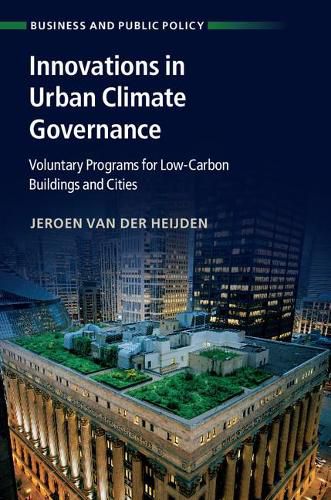Readings Newsletter
Become a Readings Member to make your shopping experience even easier.
Sign in or sign up for free!
You’re not far away from qualifying for FREE standard shipping within Australia
You’ve qualified for FREE standard shipping within Australia
The cart is loading…






Building on unique data, this book analyses the efficacy of a prominent climate change mitigation strategy: voluntary programs for sustainable buildings and cities. It evaluates the performance of thirty-five voluntary programs from the global north and south, including certification programs, knowledge networks, and novel forms of financing. The author examines them through the lens of club theory, urban transformation theory, and diffusion of innovations theory. Using qualitative comparative analysis (QCA) the book points out the opportunities and constraints of voluntary programs for decarbonising the built environment, and argues for a transformation of their use in climate change mitigation. The book will appeal to readers interested in sustainable city planning, climate change mitigation, and voluntarism as an alternative governance mechanism for achieving socially and environmentally desirable outcomes. The wide diversity of cases from the global north and south generate new insights, and offers practical guidelines for designing effective programs.
$9.00 standard shipping within Australia
FREE standard shipping within Australia for orders over $100.00
Express & International shipping calculated at checkout
Building on unique data, this book analyses the efficacy of a prominent climate change mitigation strategy: voluntary programs for sustainable buildings and cities. It evaluates the performance of thirty-five voluntary programs from the global north and south, including certification programs, knowledge networks, and novel forms of financing. The author examines them through the lens of club theory, urban transformation theory, and diffusion of innovations theory. Using qualitative comparative analysis (QCA) the book points out the opportunities and constraints of voluntary programs for decarbonising the built environment, and argues for a transformation of their use in climate change mitigation. The book will appeal to readers interested in sustainable city planning, climate change mitigation, and voluntarism as an alternative governance mechanism for achieving socially and environmentally desirable outcomes. The wide diversity of cases from the global north and south generate new insights, and offers practical guidelines for designing effective programs.